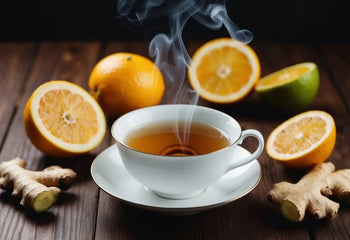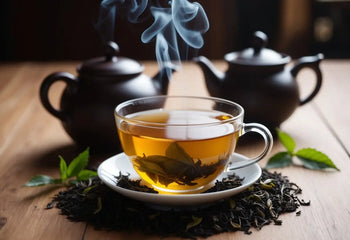10 Pu Erh Tea Blends to Try for a Unique Experience
Shop our premium Pu Erh tea collection—available in both ripe and raw varieties! Pu erh tea offers a captivating journey into the world of fermented teas. With its rich history and unique production process, this Chinese tea variety has gained popularity among tea enthusiasts worldwide. We've curated a list of 10 exceptional pu erh tea blends that promise to elevate your tea-drinking experience. These carefully selected blends showcase the diverse flavors and aromas that pu erh has to offer. From earthy and robust to smooth and mellow, each blend presents its own distinct character. 1) Crimson Earl Grey Pu Erh...
10 Ways to Travel with Pu Erh Tea
Shop our premium Pu Erh tea collection—available in both ripe and raw varieties! Pu erh tea enthusiasts know the joys of savoring this unique fermented tea. Its rich flavor and potential health benefits make it a prized possession for many tea lovers. But what about when we want to take our beloved pu erh on the road? Traveling with pu erh tea doesn't have to be complicated or messy. We've compiled 10 practical ways to transport and enjoy pu erh tea while on the go. From clever packing techniques to handy brewing methods, these tips will keep your pu erh...
10 Tips for Selecting High-Quality Pu Erh Tea
Shop our premium Pu Erh tea collection—available in both ripe and raw varieties!Pu erh tea has captivated tea enthusiasts for centuries with its rich flavor and potential health benefits. This unique Chinese tea undergoes a special fermentation process that gives it distinct characteristics. We'll explore 10 essential tips for selecting high-quality pu erh tea to help you make informed choices. Whether you're new to pu erh or a seasoned connoisseur, these insights will guide you in finding teas that offer the best taste and value. From understanding age and storage to evaluating aroma and appearance, we'll cover key factors that...
10 Rare Pu Erh Tea Varieties Explained
Shop our premium Pu Erh tea collection—available in both ripe and raw varieties! Pu erh tea, a fermented variety from China's Yunnan province, hs captivated tea enthusiasts for centuries. Its rich flavors and potential health benefits have made it increasingly popular worldwide in recent years. We're excited to explore 10 rare pu erh varieties in this article. These unique teas offer a range of tastes and aromas that showcase the diversity within this fascinating category of tea. From aged vintages to special production methods, each variety has its own story to tell. 1) Lao Ban Zhang Lao Ban Zhang is...
Recent articles






